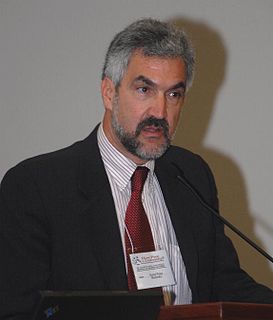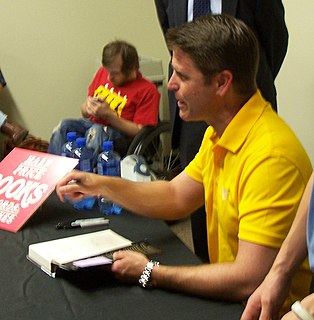A Quote by Bernard Lewis
In the Christian world, as you remember, Christianity is in the 21st century, Islam is in the 15th century. I don't mean to say that Islam is backward; I mean to say that there are certain experiences that it hasn't gone through. Christianity had the great religious wars of the 17th century. Islam, fortunately for the Muslims, did not have that. Christianity worked out a system of toleration. Islam was always more tolerant of Christendom.
Related Quotes
Sometimes people have said that Islam, in its own calendar, is still only in the Middle Ages. It's still in the fifteenth century or whatever. And Christianity in the fifteenth century, after all, was full of inquisitions and burnings at the stake, and so on and so on. So give Islam time, and it will reach the point of maturity that other religions have. But Mormonism is much younger than Islam, and it's got there already. So I don't think that's an argument that works.
What we argue in the piece is that the headscarf has become a political symbol for an ideology of Islam that is exported to the world by the theocracies of the governments of Iran and Saudi Arabia. Just like the Catholic Church in the 17th century did religious propaganda to challenge the Protestant Reformation, these ideologies are trying to define the way Muslims express Islam in the world.
Rather than being a 'perversion' of Islam, it is truer to say that the version of Islam espoused by ISIS, while undoubtedly the worst possible interpretation of Islam, and for Muslims and non-Muslims everywhere obviously the most destructive version of Islam, is nevertheless a plausible interpretation of Islam.
That there's no link between Islam and Christianity and Judaism. There wouldn't be Islam if there wasn't Christianity or Judaism, because it's all one long line of revelation. Seeing it from that point of view it makes you ask yourself why Muslims sometimes separate themselves from that large family that leads to Abraham and, even before that, to Adam. The only answer is that we're conditioned to do it by thinking, Hey, I do things better than he does.
It is difficult to generalize about Islam. To begin with, the word itself is commonly used with two related but distinct meanings, as the equivalents both of Christianity, and Christendom. In the one sense, it denotes a religion, as system of beliefs and worship; in the other, the civilization that grew up and flourished under the aegis of that religion. The word Islam thus denotes more than fourteen centuries of history, a billion and a third people, and a religious and cultural tradition of enormous diversity.
When I was growing up, we often heard Islam in the form of a slogan: "Islam is the solution," but no one ever told me that Islam can be a burden... Very few Muslims write about Islam creatively because I don't think we're given permission to. I think that's the bane of modern Islam. It's been reduced to slogans.






































